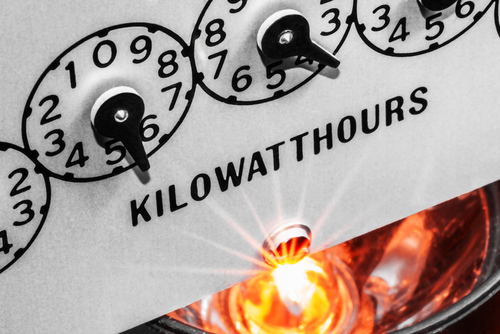Will energy be at the centre of the Budget 2014?
Written by Mark Sait
Posted on March 13, 2014
Will energy be at the centre of next Wednesday’s Budget? It should be and the Chancellor is under pressure from a broad range of interest groups to focus on energy costs.
But George Osborne’s priorities may lie elsewhere as he lays the foundations for the next General Election. Business and consumer organisations want him to address the urgent need for firmer controls on rising energy and water bills. The utilities imperative grows stronger week-by-week.
Manufacturers body the EEF is forthright in its Budget submission, demanding that escalating energy costs must be addressed through a reduction in the carbon price floor – the “carbon tax” – introduced to encourage business to invest in renewable energy. The EEF says that this accounts for 10% of electricity bills in big industrial concerns.
The EEF has an ally in the consumer sector, with Which? magazine campaigning for an immediate freeze of the carbon floor price in the Budget and its eventual abolition.
Which? wants the Chancellor “to fix the broken energy market” and advises that three quarters of people (77%) are worried about energy prices with only one in five (20%) trusting gas and electricity suppliers to act in their best interests. The Which? campaign is fully supported by the Federation of Small Businesses, an often neglected but hugely important sector where rising utilities costs are a fierce burden.
It says that the carbon floor price “is an unnecessary burden on consumers that does little to incentivise low carbon energy production but increases wholesale costs”.
Rising prices
It would be interesting to see the detailed data on the effects of the carbon tax on low carbon energy production but it is a flawed green instrument. On the other side, consumption, the effects of rising prices have forced business to pay close attention to energy and water use. In fact, the EEF recently advised that some manufacturers had to stop production at times of the day when energy costs were highest.
In the domestic market millions of households have cut consumption over the past few years, according to figures from the Office of National Statistics.
The problem is that energy bills have more than doubled in the past decade, rising by nearly 40% in the past three years.
We’d think that changes in the way we use energy and water, taking more care, has been the larger part of the cut in consumption. Certainly, the Government flagship Green Deal energy and carbon reduction programme has hardly made a difference, with only a few hundred homes being made more energy efficient in the scheme’s first year.
Cut energy bills
The ideas underpinning the Green Deal are sound and Energy Secretary Ed Davey has clearly proved a worthy low-carbon champion during his tenure but he advised this week that the scheme was not a quick fix to help people cut energy bills while giving the planet a much-needed helping hand.
In a speech to the London School of Economics, Mr Davey said the Green Deal was “unlike any normal Government programme” and would take 20 years to create an established market sector.
This was an interesting and fresh point of view on energy consumption strategy. Two decades is an awfully long time and we were under the impression that immediate action was needed to reduce carbon emissions by cutting consumption through energy efficiencies.
It seems that the Coalition has much more work to do in helping people cut energy and water bills by cutting consumption. And it amazes us that programmes like the Green Deal are structurally unable to assist consumers, and businesses, to make the most effective, rapid-payback changes.
Rapid payback
At SaveMoneyCutCarbon, we argue that any national energy-efficiency finance scheme should really hone in on those energy saving changes which are measurable with rapid payback.
Our work with businesses, organisations and households gives clear evidence that retrofitting LED lighting should reduce energy consumption by up to 90%.
We’ve also seen how water efficient solutions like EcoSmart showers, eco taps and tap aerators should help people reduce water consumption by more than 50%, helping to cut water and heating bills.
The Budget next Wednesday is a perfect platform for George Osborne to provide clear, substantial support to business and consumer through effective energy-efficiency measures. Let’s hope he acts decisively.
To help you manage your energy budget more efficiently, call us on 0845 123 5464 for practical advice and solutions.
